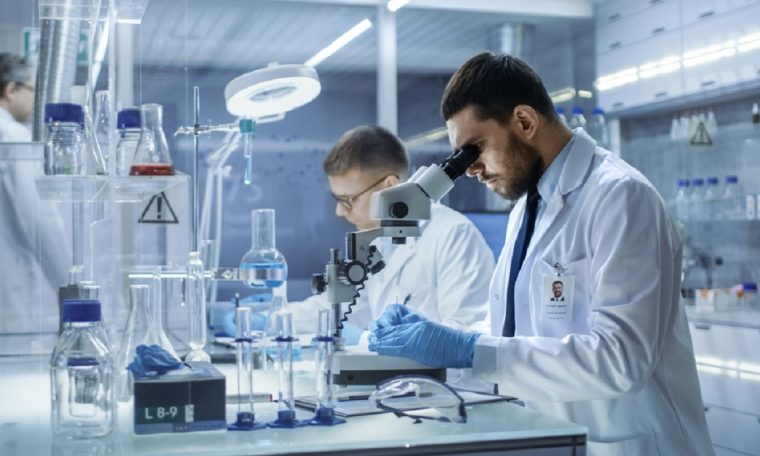
You may have heard the word, Biotechnology, in the news quite a bit recently or noticed its increasing presence in health and wellness products on your supermarket shelves. But, have you stopped to ponder on the pressing questions surrounding its practices and ethical considerations? Just as attractive as the potential benefits of biotechnology are, such promises also beckon significant ethical questions and considerations that demand our attention.
Biotechnology covers a broad spectrum, from DNA testing and cloning to developing personalized medicines and genetically modified crops. While these advancements promise significant benefits, such promises also provoke intense ethical considerations that cannot be ignored. After all, with great capability, comes great responsibility. But where do we draw the line when it comes to Biotech Laboratories Practices? Moreover, how do we assure the accountability, safety, and morality in this rapidly evolving field?
This article aims to delve into the core of these pressing concerns. Through a comprehensive exploration, we will tackle various ethical aspects around Biotech Laboratories Practices, setting the stage for a food-for-thought dialogue that paves the way for responsible, equitable, and ethical development in this sector. Join us on this journey to understand what makes Biotech Laboratories Practices more than just a fascinating science and a topic deserving ethical scrutiny.
Understanding Biotech and Its Ethical Implications
Biotechnology, in essence, is the manipulation of living organisms to produce useful products. However, we must consider the implications. While the desired outcomes promise progress and improvement, there are significant ethical considerations that inevitably come with it. Issues such as the potential for gene misuse, impact on biodiversity and environment, bio safety, and third-world exploitation, are some of the common, profound concerns that need to be addressed.
Bio-Piracy and Third World Exploitation
- Definition of Biopiracy: Biopiracy refers to the unauthorized appropriation of biological resources, such as plants, animals, or microorganisms, from indigenous or less economically developed regions by individuals or corporations, typically for commercial gain. This practice often involves extracting valuable genetic material or traditional knowledge without proper consent, recognition, or benefit-sharing arrangements with the communities or countries of origin.
- Ethical Implications: Biopiracy raises significant ethical concerns, primarily related to fairness, justice, and respect for indigenous rights. Indigenous communities and traditional knowledge holders often possess deep cultural connections to their local biodiversity and have stewarded these resources for generations. The exploitation of their genetic resources without their consent or equitable compensation undermines their rights to self-determination, cultural integrity, and sovereignty over their natural heritage.
- Uneven Distribution of Benefits: One of the central issues highlighted by biopiracy is the glaring imbalance in the distribution of benefits derived from genetic resources. Biotech companies and pharmaceutical firms frequently profit from the commercialization of products developed from these resources, such as pharmaceutical drugs, agricultural crops, or cosmetic ingredients, without adequately compensating the communities that contributed to their discovery or development.
- Lack of Legal Protections: The prevalence of biopiracy underscores the inadequacy of existing legal frameworks to protect the rights of indigenous peoples and biodiversity-rich countries. International agreements like the Convention on Biological Diversity (CBD) aim to address these concerns by promoting fair and equitable benefit-sharing arrangements. However, implementation and enforcement remain challenging, leaving indigenous communities vulnerable to exploitation and marginalization.
- Need for Ethical Business Practices: Addressing biopiracy requires a concerted effort from governments, industry stakeholders, and civil society to uphold ethical business practices and ensure the fair and equitable treatment of indigenous peoples and local communities. This includes respecting the principles of free, prior, and informed consent (FPIC), establishing mutually beneficial partnerships, and providing fair compensation for the use of genetic resources and traditional knowledge.
- Promoting Sustainable Development: Ultimately, combating biopiracy is not only a matter of ethical responsibility but also essential for promoting sustainable development and preserving global biodiversity. Recognizing the rights of indigenous peoples and fostering genuine partnerships based on mutual respect and benefit-sharing can contribute to more equitable and sustainable approaches to biotechnology research and commercialization.
Breaching Ethical Boundaries with Cloning
Expanding on the topic of cloning in biotechnology, it’s essential to delve into its multifaceted nature and the significant impact it has on various aspects of society, ethics, and science.
- Scientific Advancements: Cloning represents a remarkable achievement in biotechnology, offering opportunities for significant scientific advancements. Through cloning techniques, researchers can produce identical genetic copies of organisms, facilitating studies on genetic diseases, developmental biology, and agricultural improvements. This aspect opens doors for breakthroughs in medicine, agriculture, and conservation efforts.
- Medical Applications: Cloning holds promise for medical applications, particularly in organ transplantation. The ability to clone tissues or organs from a patient’s own cells could potentially overcome issues of organ rejection and scarcity, revolutionizing the field of regenerative medicine. Moreover, cloned animal models provide valuable insights into disease mechanisms and aid in the development of new treatments.
- Conservation Efforts: Cloning also plays a crucial role in conservation efforts, especially for endangered species. By cloning endangered animals, conservationists aim to boost population numbers and preserve genetic diversity, thereby preventing species extinction. This application underscores the potential of cloning to mitigate the loss of biodiversity and protect vulnerable ecosystems.
- Ethical Dilemmas: However, the practice of cloning raises complex ethical dilemmas that evoke deep-seated societal concerns. Central to these debates are questions about human dignity, individuality, and the sanctity of life. Cloning challenges traditional notions of identity and uniqueness, as cloned organisms share identical genetic makeup with their donor counterparts. This aspect prompts philosophical reflections on the essence of humanity and the intrinsic value of each individual.
- Potential Misuse: Moreover, the prospect of cloning also brings forth apprehensions regarding its potential misuse and ethical implications. The cloning of humans, often depicted in speculative fiction, sparks fears of reproductive cloning, genetic manipulation, and the creation of designer babies. These concerns underscore the importance of establishing robust regulatory frameworks to govern the ethical boundaries of cloning research and applications.
Imbalance in Access to Biotech Advancements
Finally, we must consider the imbalances in access to biotech-borne benefits. It’s essential to ensure that advancements in biotechnology are made universally accessible, and not solely for the affluent, thus preventing a deepening divide in societal health and welfare.
Conclusion:
Biotech Laboratories Practices, with their promises of revolutionizing industries and shaping the future of humanity, are indeed highly intriguing and potentially beneficial. However, as with all great leaps in knowledge and capability, they hold the potential for misuse, harm, or unfair distribution of benefits. As we navigate through the fascinating terrain of biotechnology, the ethical considerations enumerated above need to occupy the forefront of our conversations and policies. The promise of a ‘biotechnology-aided’ future is incredibly alluring, but it must be ethically sound, balanced, and sustainable. Understanding that forms the crux of ethical considerations in Biotech Laboratories Practices.




